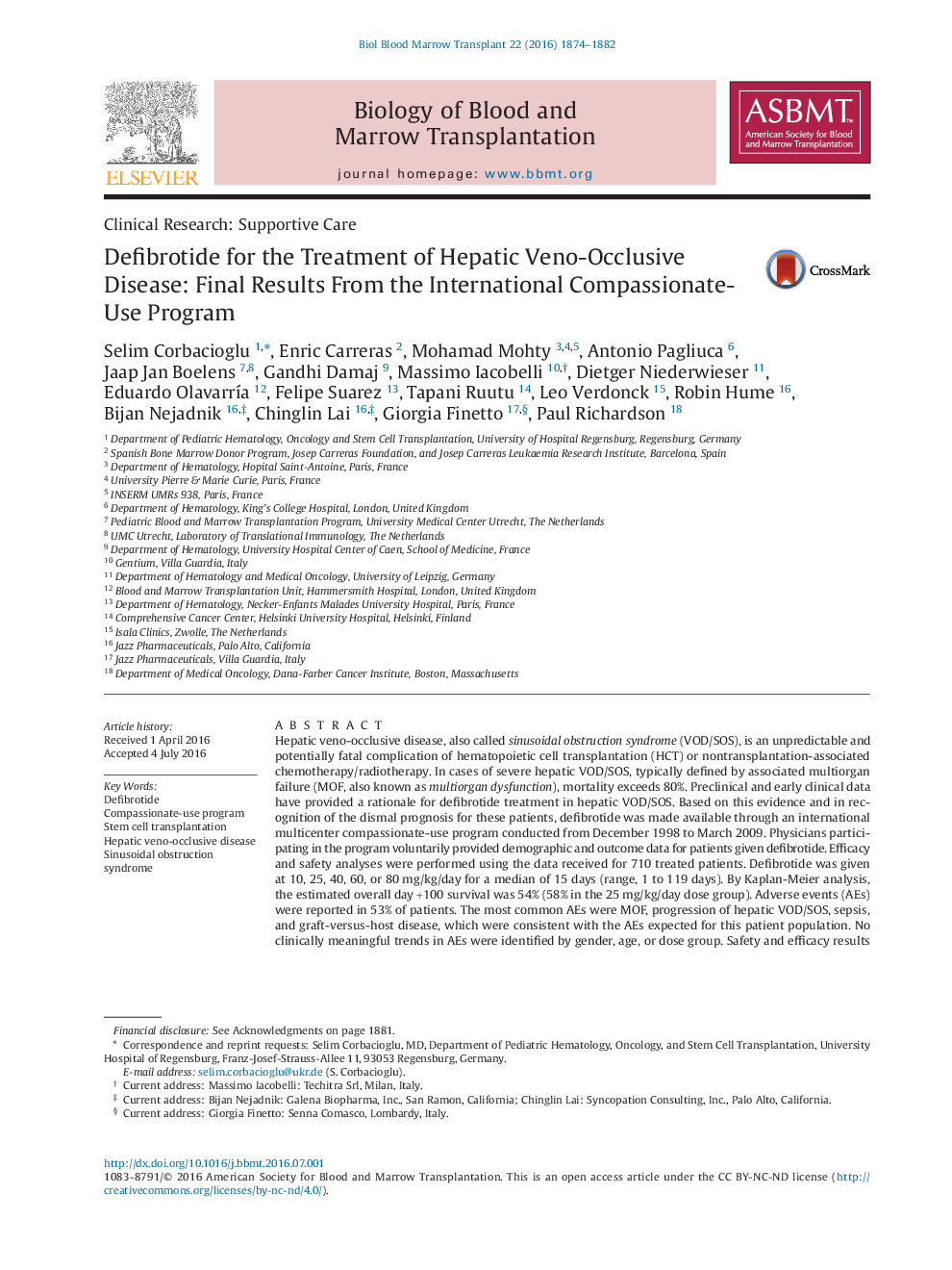| کد مقاله | کد نشریه | سال انتشار | مقاله انگلیسی | نسخه تمام متن |
|---|---|---|---|---|
| 5524560 | 1546249 | 2016 | 9 صفحه PDF | دانلود رایگان |

- Veno-occlusive disease/sinusoidal obstruction syndrome can be severe
- Severe veno-occlusive disease/sinusoidal obstruction syndrome can develop unpredictably and can be fatal
- Defibrotide has demonstrated efficacy and safety in treatment of veno-occlusive disease/sinusoidal obstruction syndrome
- Safety and efficacy were consistent with prior studies of defibrotide in veno-occlusive disease/sinusoidal obstruction syndrome
- Subgroup results lend support to the 25âmg/kg/day recommended dose for defibrotide
Hepatic veno-occlusive disease, also called sinusoidal obstruction syndrome (VOD/SOS), is an unpredictable and potentially fatal complication of hematopoietic cell transplantation (HCT) or nontransplantation-associated chemotherapy/radiotherapy. In cases of severe hepatic VOD/SOS, typically defined by associated multiorgan failure (MOF, also known as multiorgan dysfunction), mortality exceeds 80%. Preclinical and early clinical data have provided a rationale for defibrotide treatment in hepatic VOD/SOS. Based on this evidence and in recognition of the dismal prognosis for these patients, defibrotide was made available through an international multicenter compassionate-use program conducted from December 1998 to March 2009. Physicians participating in the program voluntarily provided demographic and outcome data for patients given defibrotide. Efficacy and safety analyses were performed using the data received for 710 treated patients. Defibrotide was given at 10, 25, 40, 60, or 80âmg/kg/day for a median of 15 days (range, 1 to 119 days). By Kaplan-Meier analysis, the estimated overall day +100 survival was 54% (58% in the 25âmg/kg/day dose group). Adverse events (AEs) were reported in 53% of patients. The most common AEs were MOF, progression of hepatic VOD/SOS, sepsis, and graft-versus-host disease, which were consistent with the AEs expected for this patient population. No clinically meaningful trends in AEs were identified by gender, age, or dose group. Safety and efficacy resultswere consistent with prior studies of defibrotide in hepatic VOD/SOS, and subgroup analyses lend support to the use of the 25âmg/kg/day dose.
Journal: Biology of Blood and Marrow Transplantation - Volume 22, Issue 10, October 2016, Pages 1874-1882